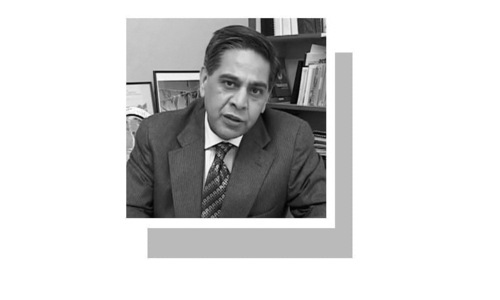• Bhakkar and Jacobabad report 49°C as heatwave persists
• Hospitals across Punjab receive scores of heatstroke patients
• Authorities ask people to remain indoors, stay hydrated
• Met Office expects hot spell to continue for 48-72 hours
LAHORE: Amid no let-up in extreme heat that has engulfed Pakistan since last week, almost all cities in Punjab reported temperatures exceeding 45 degrees Celsius, with Bhakkar and Sindh’s Jacobabad topping the charts with 49°C.
The intense weather is expected to continue today as well, according to the Pakistan Meteorological Department. “Mainly hot and dry weather is expected in most parts of the country, while very hot in plain areas,” it said in a statement posted on its website.
“However, dust-raising/gusty winds are likely in plain areas during the afternoon. Partly cloudy weather with isolated rain-wind/thunderstorm is likely in upper Khyber Pakhtunkhwa, Potohar region, Kashmir and Gilgit-Baltistan during the evening/night,” it added.
The Provincial Disaster Management Authority (PDMA) reported extreme conditions across Punjab, including Sargodha City at 47.8°C, Gujranwala and Hafizabad at 47.5°C, and Lahore at 46.2°C. Only the hill station of Murree offered some respite with a relatively cooler temperature of 32°C.
Like Punjab, the rest of the country sizzled as well, bringing life to a standstill. In Sindh, Jacobabad reported 49 and Mohenjo-Daro simmered at 48°C. Larkana and Sukkur recorded 47°C. Karachi experienced sweltering 40°C with 70% humidity, making conditions unbearable for citizens in the port city.
The Khyber Pakhtunkhwa (KP) plains, including Peshawar and Dera Ismail Khan, baked at 45-46°C. The northern mountainous areas remained relatively cooler, however. Balochistan’s Sibi and Turbat reported 47°C, while Quetta witnessed a comparatively mild temperature of 38°C.
Across Punjab, people avoided stepping outside to hide from the sun while markets and streets wore a deserted look during the afternoon. The relentless heat left streets deserted during the afternoon, with vendors and labourers struggling to cope. “The heat is unbearable. Even standing in the shade feels like being in an oven,” said Muhammad Asif, a rickshaw driver in Lahore.
Due to extreme heat, hospitals in Punjab received scores of heatstroke cases, which were treated by the authorities that had set up dedicated counters in the state-run hospitals. Most cases were reported particularly among labourers, the elderly and children. To add to the misery were the intermittent power outages in various cities, leaving many without fans or air-conditioning.
In light of the heatwave, the National Disaster Management Authority alerted all provincial departments to remain vigilant as the heatwave persists.
In response to the crisis, the Punjab government issued directives to mitigate the situation.
Punjab Relief Commissioner Nabil Javed ordered all commissioners and deputy commissioners to remain on high alert. He said the authorities were providing cool drinking water at public spaces, transport hubs, and markets, and hospitals had set up heatstroke emergency counters, and medical supplies were stocked to treat heat-related illnesses.
He said that the water supply in Cholistan was being closely monitored to prevent shortages.
The authorities issued health advisories urging citizens to stay hydrated, avoid unnecessary outdoor activities between 11am-4pm and watch for heatstroke symptoms.
Residents were encouraged to wear light-coloured, loose cotton clothing and stay hydrated. Special attention was called for children, the elderly, and sick individuals who are at highest risk, with authorities recommending they remain in cool environments.
People were advised to avoid strenuous work or exercise in direct sunlight and to call PDMA’s emergency helpline 1129 in case of experiencing heatstroke symptoms.
The Met department predicts no immediate relief, with the heatwave expected to continue for the next 48-72 hours.
“This is a life-threatening situation,” warned PDMA DG Irfan Ali Kathia, stressing that vulnerable groups must be protected at all costs.
Published in Dawn, June 12th, 2025















































